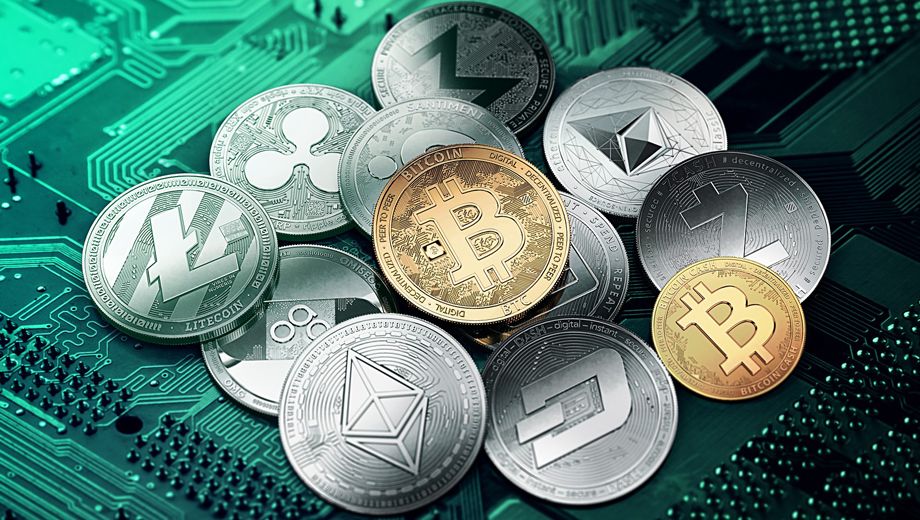Cryptocurrency is a new 'coin of the realm' for loyalty programs

Rene Konrad earns bonus miles from four airlines, plus loyalty points from six retailers and credit cards. But the one loyalty program he is most excited about now offers him something different: digital coins.
Before he jumps on the train to Zurich most mornings, Konrad grabs a bottle of Caffe Lattesso. The 41-year-old can get about 12 Lattessocoins by entering a code from the bottle into a website. In a few months, the accumulated coins – which only became available in April – should become tradeable for other digital tokens, as well as cash.
“I don’t know how many airline miles I lost because I didn’t use them fast enough,” Konrad said in a phone interview. “The fiat money no one can take away from me.”
With more than 1,600 digital tokens already in existence, coin issuers and companies are embracing the tried-and-tested loyalty programs to differentiate themselves.
In February, Tokyo-based e-commerce giant Rakuten said it planned to issue its own rewards coin convertible to cash. EZ Rent-A-Car is letting reward-program members convert points into digital currencies such as Bitcoin. Hewlett Packard Enterprise is trying to figure out how to make tokens work for gas-station rewards.
They still face an uphill climb. Total loyalty programs’ user growth has slowed to 15 percent over a two-year period ending 2016, down from 26 percent in the prior similar period, according to the 2017 Colloquy Loyalty Census, based in part on a survey of about 4,500 American and Canadian consumers.
More than half of loyalty memberships in the U.S. are inactive, and about 30 percent of consumers have abandoned a program without ever redeeming a point or a mile.
Companies are hoping digital coins can reverse these trends by capturing the attention of younger consumers. Almost one in five Millennials owns digital currencies, according to a survey of 2,001 Americans commissioned by Finder.com.
The changeover could also help boost the bottom line. While unredeemed reward points often sit as liabilities on companies’ balance sheets, digital coins representing those same reward points and convertible into cash likely won’t have to. When redeemed, the coins may even be booked as revenue.
Can Blockchain reduce fees?
Then there’s the allure of the blockchain. Today, merchants pay third-party processors like First Data Corp. about $35 billion a year for servicing prepaid or private-label credit cards that are tied to loyalty points, according to Richard Crone, chief executive officer of payments consultant Crone Consulting.
By issuing tokens, merchants could cut up to 80 percent of the fees, he said. The underlying blockchain technology can help them keep track of transactions.
"You are creating your own card with your own prepaid balances," Crone said. Many major merchants are piloting such programs this year, and will launch them next year, he said.
Within five to 10 years, 5 percent of U.S. adults will use crypto loyalty points, and the annual issuance of related tokens should reach US$3.6 billion, said Lex Sokolin, global director of fintech strategy for Autonomous Research LLC. Within 10 to 20 years, 15 percent of Americans are likely to use digital loyalty points, he estimated.
Rakuten could become the biggest provider of blockchain-based loyalty coins. CEO Hiroshi “Mickey” Mikitani said this year that the company plans to issue a loyalty coin that can be used on its websites and converted to fiat. The e-retailer has already issued US$9 billion of points in the last 15 years, he said.
Mobile apps
Other companies aren’t far behind. Startup Qiibee, which worked with about 900 brands including Subway and Burger King on a mobile app, is now placing customers such as Lattesso on blockchain. By the end of the year, 20 brands will likely have issued loyalty coins.
"It doesn’t mean it will replace the mile, it will replace the technology behind it," said Qiibee CEO Gabriele Giancola. “It’s no more points, it’s a token."
Another startup, the DigitalBits Project, said tokens for the Caddle app, which offers Canadians cash-back rebates from companies like Pepsi and Mars, could eventually be converted to Ether or Bitcoin.
Others expect blockchain-based loyalty programs to evolve beyond tradeable coins.
Hewlett Packard is working with Streamr to test using blockchain to provide rewards to motorists. In the future, cars may collect their own acceleration data, fuel usage and location information, and let nearby gas companies offer drivers incentives through coupons or loyalty points.
Marketing gimmicks
Tradeable tokens don’t come without some drawbacks. Instead of using them to shop at the issuing company’s stores or website, users could spend them elsewhere.
And some of the first blockchain-based loyalty programs are admittedly more marketing gimmicks than deals. Advantage Rent A Car started a new coin-based loyalty program in May. Members of its EZ Money loyalty program can get US$25 of Bitcoin for earning 5,000 reward points – or spending US$5,000 on rentals – a hefty commitment by most measures. The company may adjust the amount.
"The benefit of a program is when you give customers what they want, they will come and rent from you again," said Advantage CEO Scott Davido.
Virgin Australia - Velocity Rewards
14 Mar 2017
Total posts 152
The utility of a points system is that you have the flexibility to convert your points to awards at different rates depending on the award, as well as maximising earn through loyalty to different providers (e.g. credit cards).
Hi Guest, join in the discussion on Cryptocurrency is a new 'coin of the realm' for loyalty programs